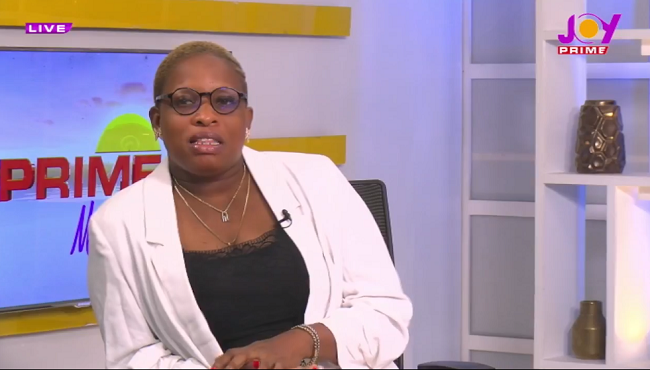Nigerian-based lawyer and business development expert, Tine-Anona Ifunanya is pleading with the government to reduce the campaign costs for aspiring female politicians.
This, she said, will help capable women venture into politics and explore their potential to empower themselves and other women.
In Ghana, expenses in politics include the cost of nomination forms and filing fee.
Speaking on Joy Prime’s morning show on Monday, the lawyer indicated that most females have leadership skills but are unable to take up political roles because they cannot afford the cost of the forms.
"When it comes to women being in politics, I think they need to do more. Give these people forms for free. I think we should give them all the support that they need. We should reduce the cost of campaigning for these people. We can actually even pinpoint them and appoint them to those positions. That way, I feel women will have more playing ground, and nobody will be saying we’re not supporting each other," she suggested.
She also noted that the majority of women fear assuming leadership positions due to how girls in Africa are being trained.
According to her, they grow up with the notion that certain roles are meant for men, hence they become reluctant to take such positions.
The legal practitioner further suggested that the government ought to support the private sector’s efforts and contributions to empowering women.
She believes non-governmental organisations are overly labelled and should not be left out in their dealings with issues surrounding the female gender.
"…The government shouldn’t just let the private sector operate on its own. The government should have allowances. There should be a data base whereby if a company employs three women that are married and are within the childbearing age, these should also be within the data base of the government so that whenever there are maternity leaves, the government can step in to help."
As a financial literacy expert, Barrister Tine-Anona called on the government and other opinion leaders to create schools, grant scholarships, and initiate policies that will encourage the girl child to improve on their education.
Latest Stories
-
Tension brews in Effiduase as family rejects destoolment of chief who resisted controversial sale of COVID-19 cemetery land
7 minutes -
Hamburg Sustainability Conference 2025 concludes with new global alliances and concrete commitments for a sustainable future
21 minutes -
GPL 2024/25: Hearts of Oak beat Samartex to finish fourth
24 minutes -
GPL 2024/2025: Bechem United clinch win in final home match against Young Apostles
26 minutes -
GPL 2024/25: Asante Kotoko end season in fifth after Vision FC defeat
31 minutes -
Economic Fighters League condemns ‘D-Levy’ as symbol of deepening inequality
31 minutes -
2024/25 GPL: Dreams FC thrash Legon Cities 4-1 to end season on a high
33 minutes -
2024/2025 GPL: Bibiani Gold Stars claim Ghana Premier League title after win over Accra Lions
47 minutes -
Ghana Chamber of Mines appoints Kenneth Ashigbey as new CEO
54 minutes -
Maven communications honours 41 leading businesses at 2025 Ghana Business League Awards
2 hours -
APSU USA endorses Catholic Church’s renewed role in educational management
2 hours -
The New Force issues apology over assault involving security guard
3 hours -
Colombia presidential hopeful shot in head at rally
4 hours -
Rwanda pulls out of regional bloc over DR Congo row
4 hours -
5 motorbikes, fufu pounding machine destroyed as fire guts mechanic shop at Kintampo
4 hours

